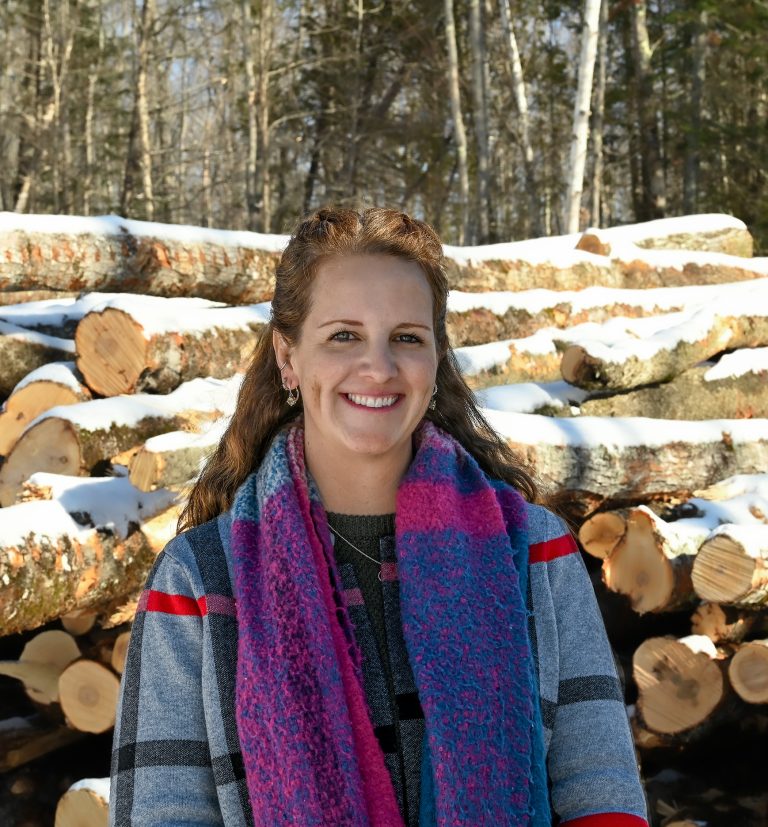With Rising Fuel Prices, Wood Heat Clearly Now Best Option For Many Mainers
While the U.S. Energy Information Administration’s Winter Fuels Outlook predicts rising heating bills this winter, Maine residents are in a fortunate position compared to other regions of the country, according to the state’s wood pellet fuel and logging industries. Heating with Maine-grown wood fuel that creates local Maine jobs has never been so inexpensive nor attainable.
“We make the one heating fuel which is not spiking in price and we now finally have both state and federal incentives which dramatically reduce the cost of installing efficient wood pellet heating systems,” states the Maine Pellet Fuels Association.
The association notes that as the most densely forested state in the nation, Maine is home to four pellet manufacturing plants, located from Aroostook to York County. “We have plenty of pellets available at present,” promises Bob Linkletter, co-owner of Maine Woods Pellet in Athens, whose facility also generates electricity. “We have a strong inventory on hand,” states Matt Bell, owner of Northeast Pellets in Ashland, “and our wholesale prices have remained very stable over the last 15 years.” Lignetics of Maine in Strong and Wood & Sons in Sanford report similar strong pellet inventories.
Maine is also home to a major wood pellet boiler company: Maine Energy Systems in Bethel, the national assembly and distribution center for Okefen, a high-quality European brand. “We look forward to having lots of Maine interest, as homeowners become more aware of the new 26% federal tax credit for pellet boilers along with Maine’s $6,000 state rebate,” states Jared Mulliner, director of sales for Maine Energy Systems.
“In addition to wood pellets, highly efficient cord wood heating applications are a practical and affordable heating option for many Maine homeowners, while boilers burning cord wood or wood chips provide excellent options for many commercial and larger-scale needs,” states Dana Doran, executive director of the Professional Logging Contractors of Maine (PLC).
“All of these locally sourced, renewable heating options are not only cheaper alternatives to fuels like oil and propane, but also support hundreds of local jobs and allow Maine’s working forests to be properly managed by strengthening the market for low grade wood fiber,” states Doran. “Maine is the most forested state in the U.S. and could easily transition far more of its homes and businesses to wood heat while keeping more Maine dollars circulating in our own economy versus sending those dollars out of the state. With prices for fossil fuels and electricity rising and more efficient wood heating systems readily available, now is the time for Maine to embrace wood heat.”
According to the latest information from the Maine Governor’s Energy Office, cord wood remains the cheapest average cost heating fuel in Maine statewide at $12.50 per million British thermal units (BTUs) generated, while wood pellets rank second at $16.24. Natural gas, which is available in limited areas of Maine, is currently the only fossil fuel that can in some cases compete with wood, with a listed average of $10.88-$20.59 depending on location. Other fossil fuels are uncompetitive at current prices, with heating oil at $20.55, kerosene at $25.04, and propane at $33.61.
Bill Bell, executive director of the Maine Pellet Fuels Association, states that, “over the years, the fuel price surveys from the Governor’s Energy Office show that wood pellets are about 20% less expensive than heating oil, about the same price as heating with natural gas, and about half the price of propane. That is also the case right now. What’s new is that the U.S. Energy Administration predicts that fossil fuel prices are going to continue to climb, with no end in sight.”
The other “game-changer,” according to Bell, is the 26% federal tax credit for efficient new residential pellet boilers and pellet stoves, enacted by Congress at the end of last year. “This brings the price of a pellet boiler down to about equal that of a fossil fuel system. In addition, Mainers switching to these pellet boilers are cutting carbon emissions by more than 50% while keeping their fuel dollars here at home.”
The 26 percent federal tax credit also applies to certain efficient (must have a thermal efficiency of at least 75 percent per the higher heating value (HHV) of the fuel) wood fueled boilers and stoves. An Environmental Protection Agency (EPA) listing of efficiency ratings for wood heaters is available at: https://cfpub.epa.gov/oarweb/woodstove/index.cfm?fuseaction=app.about
In addition, and equally important, Efficiency Maine also provides a rebate of up to $6,000 on efficient biomass boilers or furnaces burning pellets or cordwood. Details are available at: https://www.efficiencymaine.com/at-home/biomass-boilers-furnaces/
In conclusion, Bell noted that the price of heating with heat pumps is expected to increase, with New England’s regional electric grid operator reporting wholesale power prices this August double those of a year ago.
Dana Doran is Executive Director of the Professional Logging Contractors of Maine.
William Bell is the Executive Director of the Maine Pellet Fuels Association.

